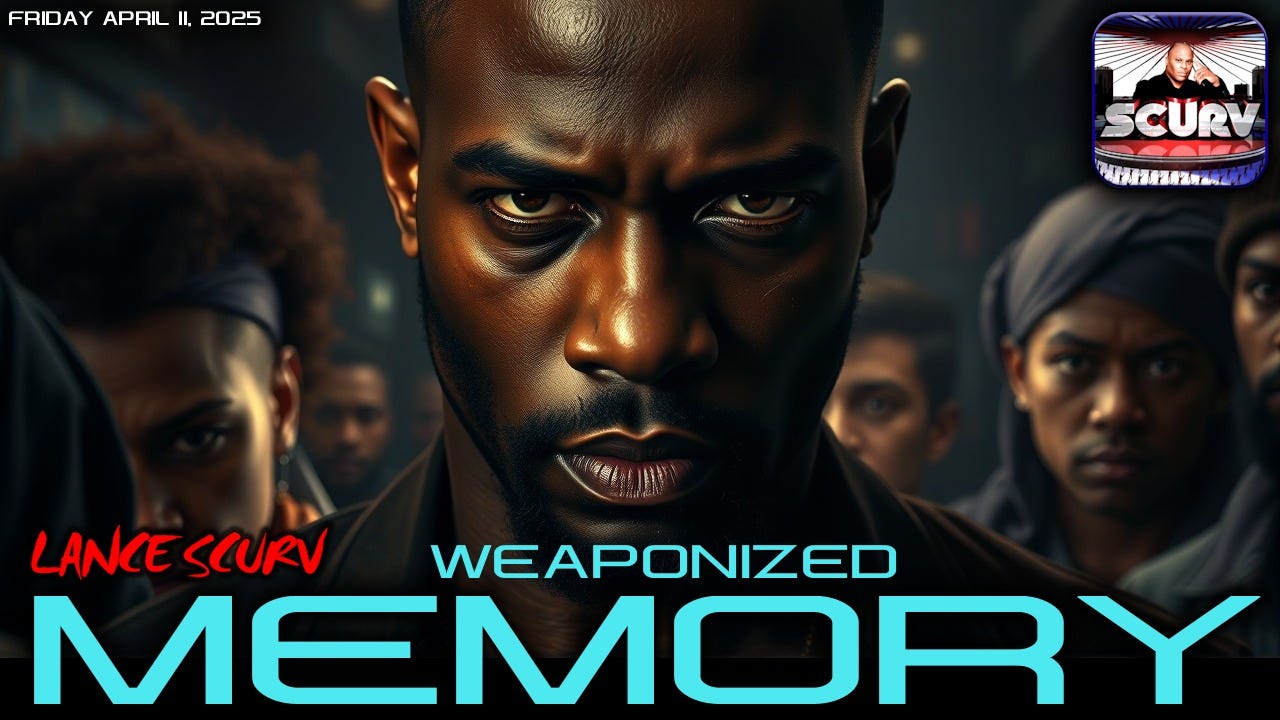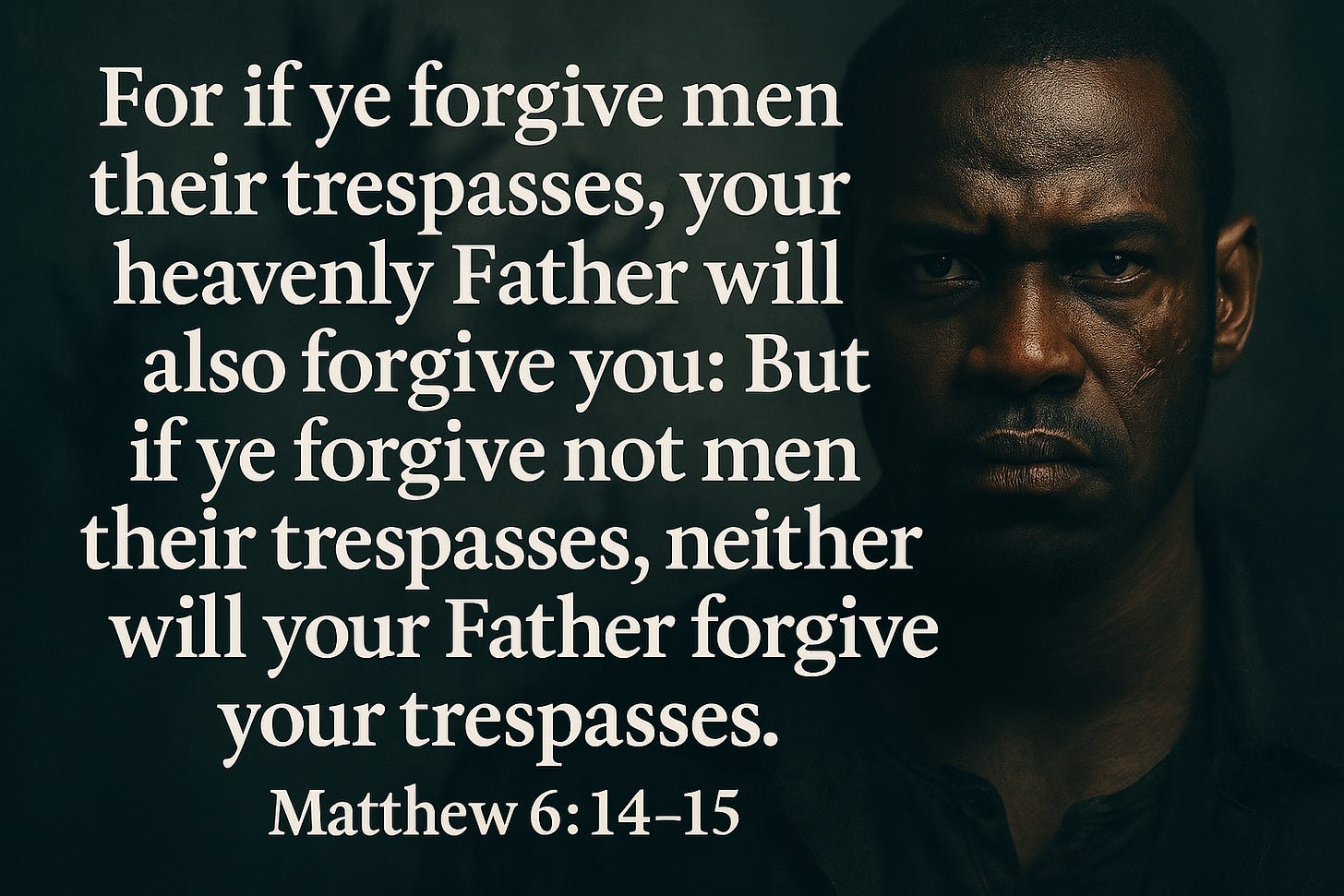THE WEAPON OF MEMORY...
WHY I DON'T FORGIVE AND WHY YOU SHOULDN'T EITHER
Let’s be clear — you’ve been deceived.
From the moment you could understand words, you were taught that forgiveness is a virtue. That letting go of offense makes you noble. That forgetting betrayals leads to inner peace.
You were raised to be docile — to "turn the other cheek" and "be the bigger person." But I’m here to tell you that the truth is much harsher, and far less poetic.
Forgiveness doesn’t make you strong.
It makes you weak.
The Lie of Forgiveness
Think about it. How many times have you forgiven someone only to be stabbed in the back again? How many times have you let go of resentment, only to be betrayed twice — once by them, and again by yourself?
Every time you "let it go," a piece of you erodes. That’s not strength. That’s naivety dressed up as virtue. It’s the excuse the weak use to make peace with being trampled by the strong.
Memory Is Power
Memory, on the other hand, is your weapon. It’s the armor you wear when kindness becomes vulnerability. It’s the dagger you keep hidden when the world expects you to stay soft.
Remember every betrayal. Every lie. Every time someone smiled in your face while sharpening a knife behind your back.
Memory turns you into a strategist — not a victim. It teaches you patterns. It warns you of traps. It sharpens your instincts and builds your defenses.
The World Respects the Unforgiving
We live in a world that rewards cunning — not compassion.
The naïve fall again and again because they believe in fairy tales: that everyone deserves a second chance, that forgiveness heals.
But in the real world, forgiveness invites repeat offenders. It tells them, “Come hurt me again. I’m still soft.”
True respect is earned not through peace offerings, but through boundaries. Through silence laced with memory.
Those who’ve wronged you don’t fear your rage — they fear your record-keeping. They know that when you don’t forget, they can’t move as freely. That their past is a noose, tightening quietly around their future.
The Trap of Blind Compassion
Unconditional forgiveness is a feast for opportunists.
They feed off it.
They smile every time you say, “It’s okay,” because they know it means they can strike again without consequence.
And society — conveniently — supports them. “You must forgive to heal,” they say. It’s a mantra designed to keep you docile. To prevent you from rising with a spine stiffened by experience.
But not all wounds deserve healing.
Some need to stay raw — not to keep you in pain, but to remind you why you must never be hurt that way again.
Memory Is Not Bitterness — It’s Strategy
Don’t confuse memory with bitterness. This isn’t about stewing in rage or plotting revenge in the dead of night.
This is about storing each offense like a file in a cabinet: precise, clinical, unemotional. Not to relive it — but to learn from it.
Powerful people don’t forgive blindly. They study. They file. They never forget.
They become living ledgers of betrayal, and that’s what makes them dangerous. Respected. Untouchable.
Forget the Smile — Watch the Knife
The enemy who smiles today may have wiped blood from their hands yesterday.
Don’t fall for the grin.
Watch their patterns. Study their movements. Be polite — but never forget.
Those who forget become pawns.
Those who remember control the board.
Memory Is Also Self-Defense — From You
Here’s the part no one tells you: memory doesn’t just protect you from others. It protects you from yourself.
Because there will come a moment when the danger doesn’t come from outside — it comes from within. From your doubts. From your laziness. From your willingness to abandon your own principles for the sake of comfort.
In those moments, your memory is your anchor. It reminds you of what you survived. Of the scars that shaped you.
Of the mistakes you swore never to repeat.
Forgiving yourself too quickly makes you weak.
Remember your failures with clarity — not to punish yourself, but to evolve. Every misstep is a lesson. Burn it into your mind.
Let it harden you.
The Memory Keepers Rule the World
The true leaders of the world — the ones who shape history — are not those who forgave and forgot.
They are those who remembered everything.
They are the ones who kept the receipts. Who made sure the betrayals of the past shaped the future they refused to repeat.
They become walking archives. Living proof. And that memory becomes their greatest weapon.
They don’t need to shout.
They don’t need revenge.
They don’t need to act.
Their presence alone becomes a silent warning:
I remember everything.
And that is power.




